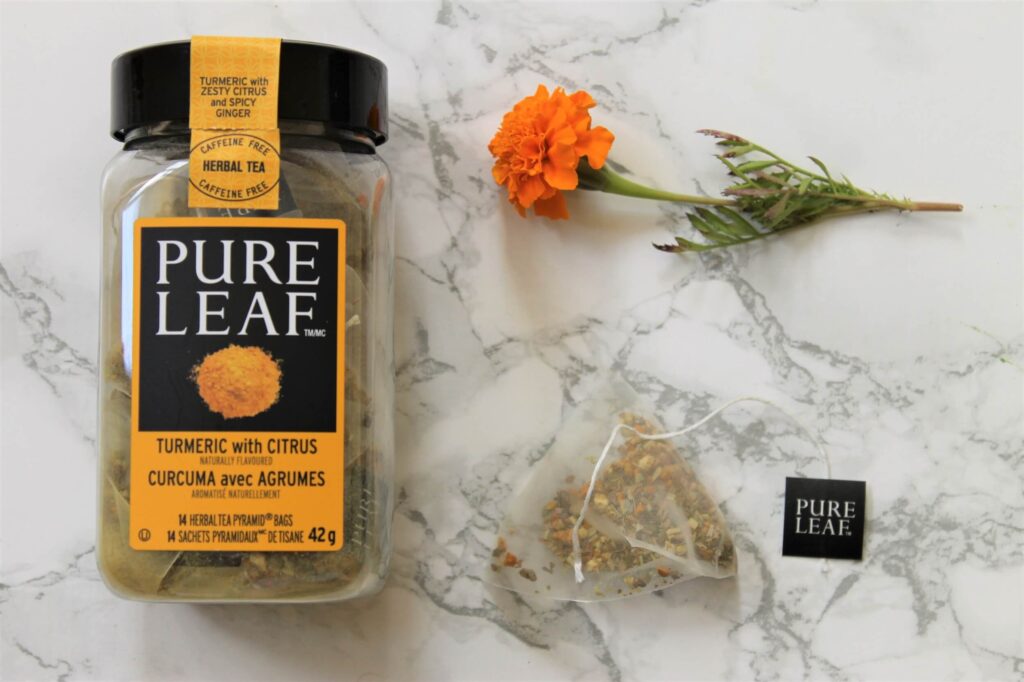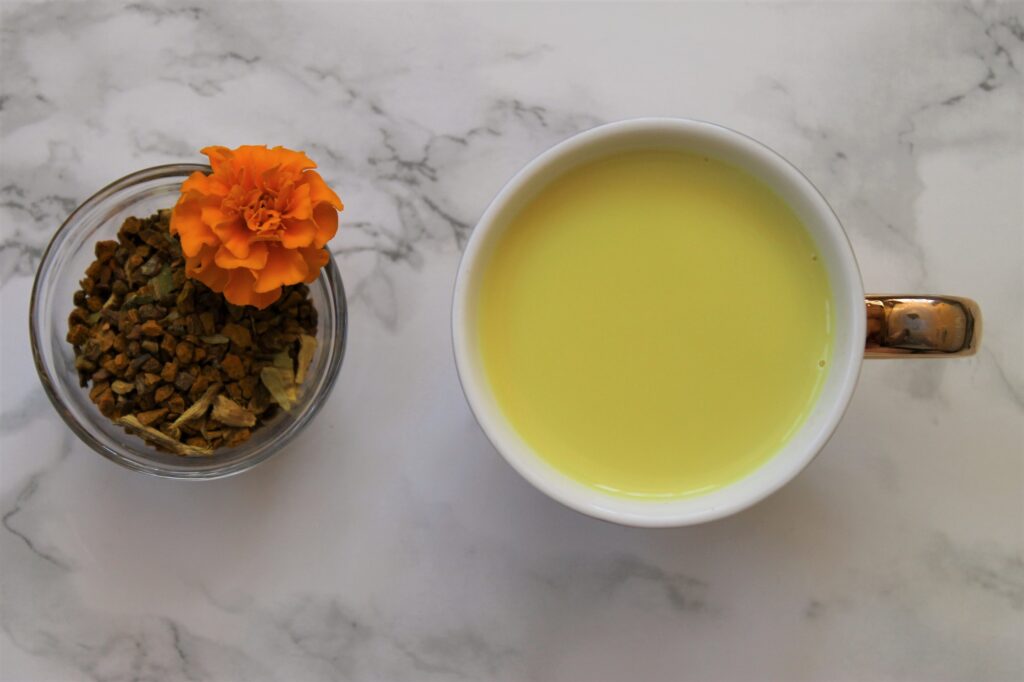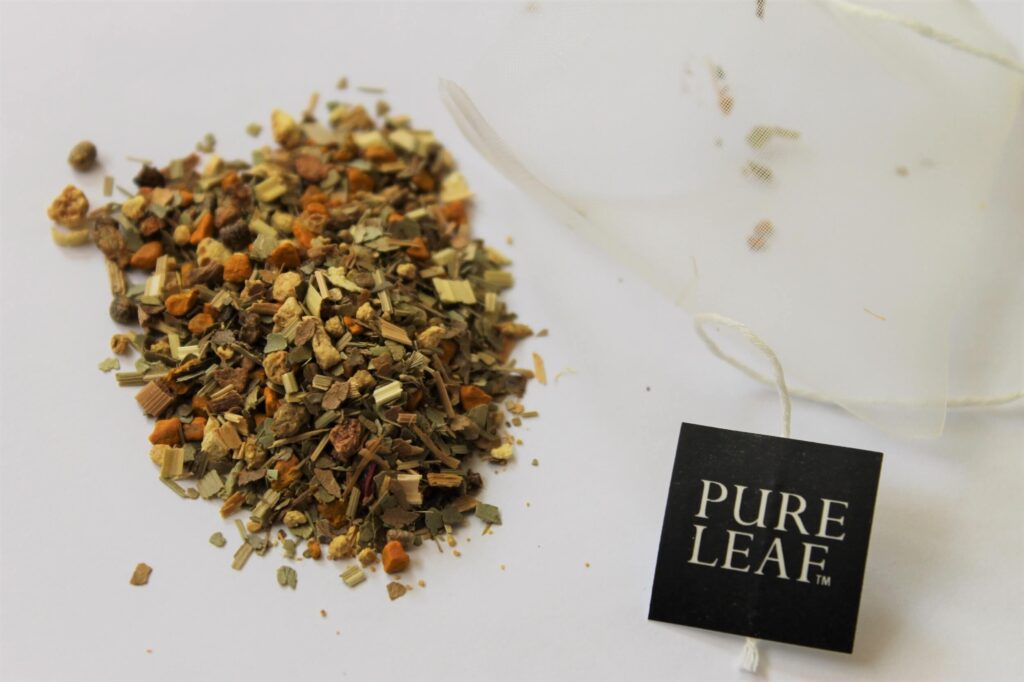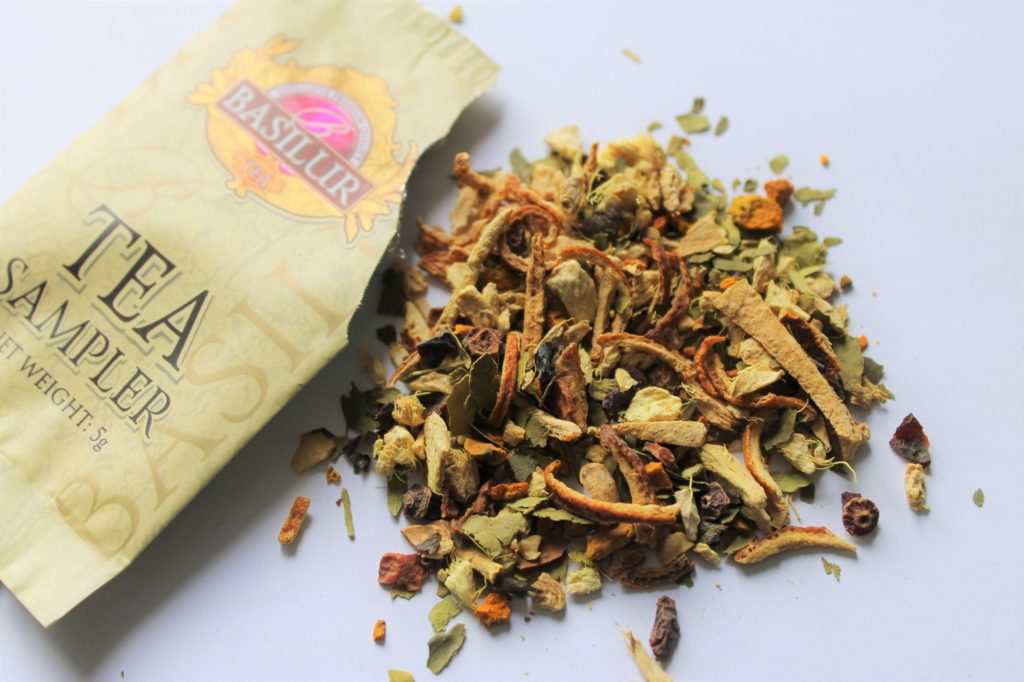I like to drink turmeric tea to soothe the inflammation caused by text thumb. This article will explain why.
Text thumb, or texting thumb, is inflammation caused by the tendon in your thumb rubbing against its surroundings repeatedly. It’s often caused by texting too much (or scrolling through Instagram, in my case) which puts lots of strain on your thumb.
If you have text thumb, you’ll probably feel the ache in the joint and knuckle area of your thumb. It may even click when you flex it back and forth. To treat it, the best thing you can do is put down your phone for a while and take a break.
The next best thing to do is call your doctor, especially if the pain doesn’t go away.
But another thing you can try is a cup of turmeric tea.
Drinking Tea for Health Benefits
If you have a health concern, whether it’s something as simple as an achy thumb or something a little more serious, the first thing you should do is talk to your doctor or health professional. A tea is never a replacement for medical treatment.
That being said, sometimes when you have a minor ailment (like a headache or blocked nose) it’s nice to try and soothe the symptoms with a cuppa instead of popping a paracetamol.
The point I’m trying to get across is that tea isn’t a cure for anything. Think of it more like a supplement that may help you naturally overcome a minor symptom. And you should definitely talk to your doctor if you want to try any herbal ingredient that you are unsure of (especially if you are taking other medications).
Once your doctor gives you the all-clear, then go ahead and try these turmeric teas!

Evidence of Anti-Inflammatory Properties?
Turmeric tea went through a craze recently, much like acai and other “superfoods” have. The main draw to turmeric is for its antioxidant and anti-inflammatory properties. These have so many applications, from reducing redness and acne to arthritis. But is it true?
The short answer is yes, turmeric has anti-inflammatory properties.
The long answer, however, is also important to understand. The component in turmeric that has anti-inflammatory properties is called curcumin (not to be confused with ordinary cumin!) and it’s well-known in the ayurvedic and modern medicine circles.
Curcumin can reduce inflammation and manage oxidative conditions, as well as be used to treat digestive problems, anxiety, arthritis, and metabolic syndrome. However, as this review points out, ingesting (eating) curcumin doesn’t actually lead to these benefits, as it is poorly absorbed and rapidly metabolised before rapid elimination.
So, how do we improve the bioavailability of curcumin so we can get the health benefits simply from eating (or drinking) it?
Turmeric and Black Pepper
The simplest solution would just be to consume more turmeric, but that would border on unpleasant. Another, better option would be to combine turmeric with other ingredients to improve its bioavailability.
The study I mentioned above goes on to explain that combining turmeric with enhancing agents improves bioavailability. Thankfully, that doesn’t mean adding chemicals. In fact, freshly ground black pepper contains piperine, which can improve the bioavailability of curcumin by 2000% when they are combined!
So, what does this mean?
Turmeric can have anti-inflammatory health benefits when it’s combined with enhancing agents (natural or otherwise) and then consumed. And this is where turmeric tea blends step in. A turmeric blend means that the tea contains other ingredients alongside turmeric to improve bioavailability.

My 3 Favourite Turmeric Teas to Try
These three teas are expertly blended with other ingredients that can boost the curcumin bioavailability and improve the flavour too. I really like turmeric chai tea, as it works naturally with black pepper, so my number 1 choice is this caffeine-free turmeric chai by Teapro.
Teapro Soothing Turmeric Root Chai
As reviewed in my Teapro Chaiwala subscription article, this chai is made with turmeric root pieces, cinnamon, cardamom, liquorice, and the all-important black pepper. I like to brew it in milk (dairy or soya) for 5 minutes, to create a silky and creamy tea. It’s a little sweet, a little earthy, and has hints of spices in it too.
This is a really great turmeric tea for inflammation as it already contains the black pepper element. The only downfall, however, is that it’s not so suitable for the hot summer months. Check it out at Teapro nonetheless.
Twinings Superblends Turmeric
The Twinings Superblends tea range is full of blends that are designed to boost your wellbeing. Their turmeric tea is targeted more at digestion than inflammation, but hopefully it should be beneficial regardless.
Twinings Superblends Turmeric contains turmeric root, lemongrass, star anise, liquorice root, orange peel, and natural flavourings. It’s good both hot and cold, so it’s a great option for iced tea in the summer. The only thing I’d be wary of is the star anise and liquorice – these ingredients produce a very unique aniseed-like sweetness that won’t be appealing to everyone. Liquorice is also unsuitable for anyone with hypertension.
Basilur Turmeric Tea
This is another herbal tea (although you can find turmeric combined with caffeinated leaves from the Camellia sinensis tea plant) from Basilur. My review of Basilur Turmeric Tea is positive, giving it a 3.7 out of 5 score.
It contains ginger, orange, rosehip and lemon verbena along with the turmeric. This is interesting because ginger is also known for having anti-inflammatory properties. That’s why I’m recommending it in this article! The flavour of this tea was quite nice, albeit quite light and citrusy. Longer brew times are recommended for this one.
Golden Milk Turmeric Tea Recipe

Golden milk recipes vary from one author to the next. Some are steeped in ayurvedic tradition (yes, that was a pun) while others are more modern concoctions. Regardless, most result in a gold-coloured milk beverage that contains spices and sometimes traditional tea too.
To make a simple turmeric milk latte:
- Brew 2fl oz of your favourite turmeric tea in water until it’s super strong in flavour.
- Heat milk on the stove. Optional: froth the hot milk with a frother.
- Pour the milk over the tea as if it’s a latte!
A spoonful of honey is a good idea too.
Another way to make a turmeric golden milk tea is to simmer the ingredients directly in the milk for 5-10 minutes. This way, you can use either dried ingredients, pre-made teabags, or fresh. Consider using:
- Fresh turmeric root,
- Fresh ginger root,
- Stem or crystalised ginger,
- Cloves,
- Cardamom,
- Nutmeg,
- Star anise,
- Allspice,
- Cinnamon sticks,
- Apple,
- Orange,
- Bay leaves,
- And peppercorns of course!
You can follow a precise recipe online, but often it’s easier to heat some milk and add whatever ingredients you have at the time to compliment the turmeric root. Once it’s at the right strength for your tastes, just strain out the ingredients and pour the liquid into a mug.
Summary – Turmeric Tea for Text Thumb Inflammation
Not only is turmeric tea a tasty beverage that can be made in many different ways, but it also has anti-inflammatory properties that could help to soothe text thumb. The science shows that curcumin extract from turmeric can reduce inflammation, but a cup of turmeric tea may have a much smaller effect even when combined with other ingredients to boost bioavailability.
Regardless, many people swear by turmeric for reducing inflammation and holding a hot cup of tea will certainly soothe your hands regardless! I highly recommend trying turmeric tea. You can select from one of my recommended teas above or use the search bar on the blog to find other teas that contain turmeric.
Finally, you can always search for turmeric tea on Amazon!

FAQs
Turmeric tea is good for aiding digestion and replenishing your body with hydration, antioxidants, and other nutrients and vitamins. It’s also thought that turmeric is great for reducing inflammation.
You can drink turmeric tea daily, if you wish. Turmeric tea usually contains only a small amount of turmeric. If you are at all concerned about consuming too much of it, then talk to your doctor or a nutritionist.
Turmeric is good for digestion and inflammation, so you may find that it helps settle your stomach after a meal. Drinking a cup of turmeric tea daily is unlikely to provoke any side effects, unless you decide to consume litres upon litres of it, or there are other harmful ingredients within the tea.
Turmeric is caffeine-free, so it’s unlikely to keep you awake at night even if you consume it in the evening. In fact, some people find that it’s soothing and relaxing so drinking it before bedtime is beneficial.
